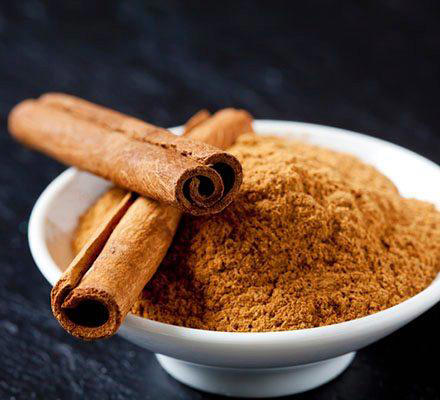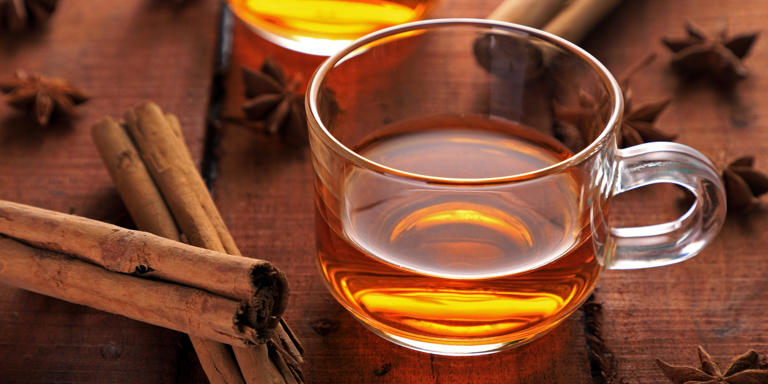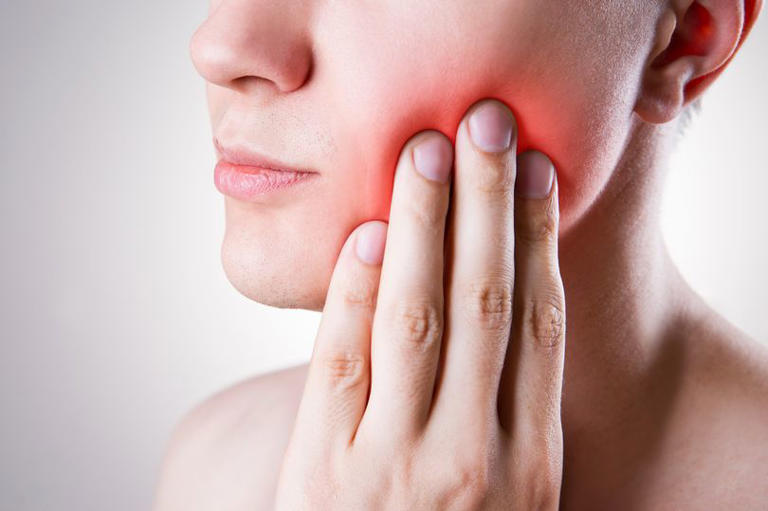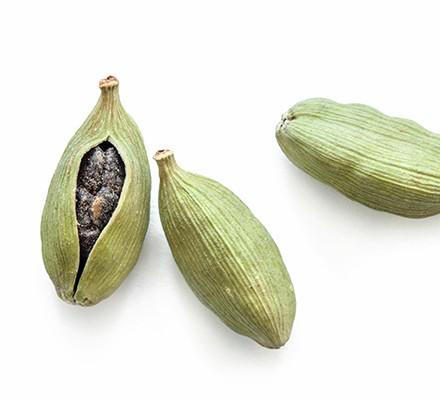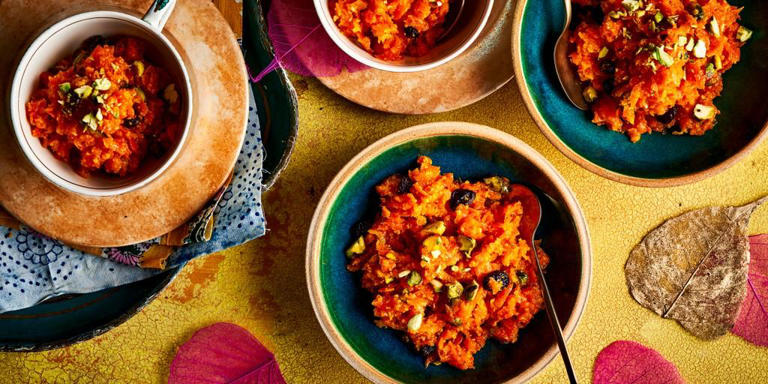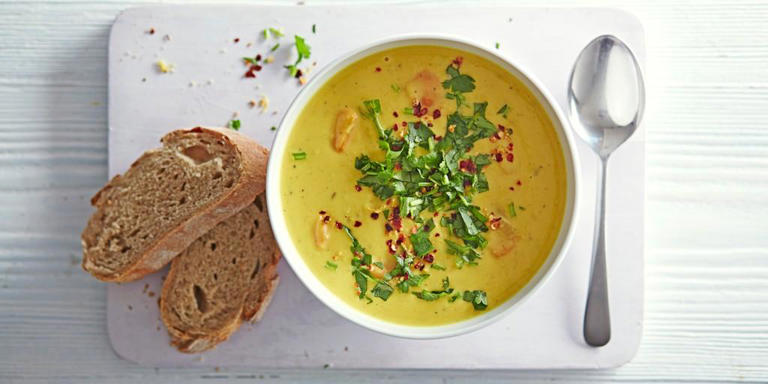20 signs your pancreas is functioning badly












20 signs your pancreas is functioning badly
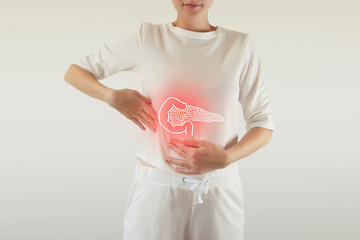
Are you experiencing unexplained fatigue, digestive issues, or changes in your blood sugar? It may be a sign that your pancreas is not functioning properly. Learn the 20 signs that your pancreas may be functioning poorly. Find out how to better protect your health and prevent further complications.
The Pancreas and its Function
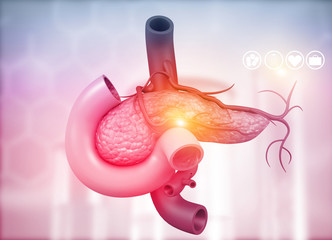
The pancreas is a small organ located behind the stomach and in front of the spine. It is approximately 15 centimetres long. It is a vital organ that plays a role in helping to digest food and produce hormones.
The pancreas has two main functions - exocrine and endocrine.
-
The exocrine function: pancreas produces enzymes and releases them to the bile duct that helps the digestive system break down proteins, carbohydrates, and lipids in food.
-
The endocrine function is to produce and secrete hormones, such as insulin, which help regulate blood sugar levels in the body
Additionally, the pancreas produces hormones that help regulate appetite and digestion. Without a functioning pancreas, it is difficult to digest food properly, resulting in malnutrition and other health complications.
Risk Factors and Causes of pancreatic dysfunction
Risk factors include advanced age, obesity, smoking, diabetes, alcohol consumption, and a sedentary lifestyle. Poor dietary habits, such as inadequate intake of essential vitamins and minerals, can also contribute to a poor pancreatic function.
Pancreatic disease messes with pancreatic function and has multiple causes. Common disorders of the pancreas include pancreatitis (acute pancreatitis and chronic pancreatitis), pancreatic cancer, diabetes, cystic fibrosis, and pancreatic insufficiency.
Pancreatitis is an inflammation of the pancreas and is the most common cause of damage to the pancreas. Pancreatitis can either be acute or chronic. Acute pancreatitis is a sudden onset of inflammation. In contrast, chronic pancreatitis results from long-term inflammation of the pancreas. Severe pancreatitis impairs the gland's function and can be observed with several signs and symptoms. It is important to detect those signs and seek medical care immediately.
Pancreatic cancer is a serious and life-threatening condition that often has no symptoms until it has progressed.
Other causes include genetic factors, such as cystic fibrosis, and autoimmune diseases, such as type 1 diabetes. Certain medications can also cause damage to the pancreas and impair the organ's ability to function properly. In addition, alcohol abuse can lead to pancreatic injury, as can gallstones or tumours that block the pancreatic duct and prevent the release of digestive enzymes.
The 20 signs that your pancreas is functioning poorly
Knowing the signs of pancreatitis can help you detect it early and seek medical treatment. Here are 20 signs and common symptoms that your pancreas is functioning poorly:
-
Unexplained weight loss;Abdominal pain, often radiating to the back;Nausea and vomiting;Jaundice, yellowing of the skin and whites of the eyes;
-
Clay-coloured stools;Loss of appetite;Fatigue;Pain in the upper abdomen or lower back;Bloating;Dark urine;Fever;Itchy skin;
-
Difficulty digesting fatty foods;Blurred vision;Low blood sugar levels;High blood pressure;Elevated liver enzymes;Abnormal liver function tests;
-
Oedema;Abnormal levels of pancreatic enzymes in the blood.
If you experience any of these symptoms, you must consult your doctor for a proper diagnosis.
Tests for Pancreas Dysfunction
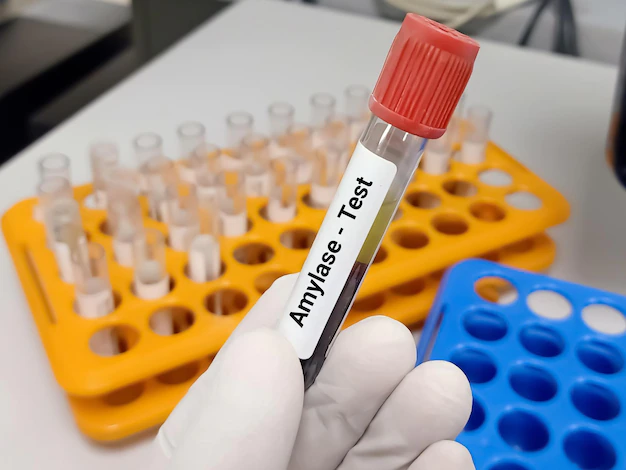
Pancreatic function tests are a series of tests used to assess the health of the pancreas. These tests measure the level of enzymes such as amylase and lipase secreted by the pancreas. Imaging tests such as CT scans, MRIs, and ultrasounds may also be used to assess the health of the pancreas and detect any abnormalities. Endoscopic ultrasound may be used to check for any blockages in the ducts of the pancreas that could be causing problems.
Reference: Welzo.com
Top 12 health benefits of cinnamon

















Top 12 health benefits of cinnamon
Top 12 health benefits of cinnamon© Provided by BBC Good Food
Is cinnamon healthy? It's been claimed that it can support the regulation of blood sugar and ease digestive discomfort, so we asked registered nutritionist Jo Lewin to explore the science behind this popular spice.
What is cinnamon?
A favourite household spice, cinnamon was once traded as currency. The spice has a pleasant flavour and warm smell, making it popular for cooking, especially in sweet bakes and curries.
Derived from the inner bark of a small evergreen tree, the bark is peeled and laid in the sun to dry, where it curls into rolls known as cinnamon sticks. Cinnamon is also available in powdered form.
Discover our full range of health benefit guides and check out some of our delicious cinnamon recipes, from cinnamon buns to cinnamon tea.
Nutritional profile of cinnamon
One teaspoon (3g) of cinnamon (ground) provides:
- 7Kcal / 31KJ
- 0.1g protein
- 0.9g carbohydrate
- 1.6 fibre
Top 12 health benefits of cinnamon
1. It has antioxidant properties
Like other spices, cinnamon contains plant compounds called polyphenols that have protective, antioxidant properties. It is these compounds that provide many of cinnamon’s health benefits as well as support its role as a preservative in food preparation.
2. It's anti-inflammatory
These same antioxidant compounds contribute towards cinnamon’s anti-inflammatory effects. As we age this may be helpful because the process of chronic inflammation is heavily involved in the progression of many age-related diseases.
3. It's anti-bacterial and anti-fungal
Cinnamon is thought to have many medicinal and soothing properties, and is used frequently in Chinese herbal medicine. The distinctive smell and flavour of cinnamon derives from the essential oils contained in the bark, called cinnamaldehyde.
Cinnamaldehyde appears to be useful in protecting against bacterial and fungal infection.
4. It may have anti-viral properties
Some research suggests cinnamon may also be protective against certain viruses, including influenza and mosquito-derived Dengue fever.
5. It may help lower blood sugar and reduce the risk of type-2 diabetes
Cinnamon has a reputation for helping manage blood sugar. It appears to do this by a number of different mechanisms, including managing the amount of glucose that enters the bloodstream.
Human trials are promising and suggest cinnamon may have a moderate effect on lowering fasting blood sugar levels in diabetics with poor blood sugar control.
6. It may improve insulin sensitivity
Insulin is the hormone involved in transporting blood sugar from our blood to the cells where we need it, this means it plays an important role in regulating our metabolism and energy levels.
As we age we may become resistant to the effects of insulin and this has the potential to disrupt blood sugar balance and over time lead to type 2 diabetes. While more research is needed it does appear that extracts from cinnamon mimic the action of insulin and potentially reduce the risk of insulin resistance.
7. It may be beneficial for the aging brain
Conditions like Alzheimer’s are more common as we age, and are typically caused by a progressive deterioration of brain cells. In Alzheimer’s, accumulation of protein fragments in the brain act by slowing how a person thinks and remembers.
Cinnamon contains two compounds that appear to inhibit the build-up of these proteins. Much of this evidence is derived from animal and test tube studies, so there is still much for us to learn with regards to how this effect may be of benefit to us.
8. It may help manage blood pressure
There is some evidence to suggest that consistent consumption of cinnamon is associated with a short-term reduction in blood pressure. Although the evidence looks hopeful, it is early days and more long-term random controlled trials are needed.
9. It may protect against heart disease
Blood pressure may not be the only cardiovascular risk factor aided by regular cinnamon consumption it also appears to have a positive impact on reducing blood triglycerides as well as cholesterol levels.
10. It may support gut health
Some spices, including cinnamon, have prebiotic properties. Consuming them regularly may help restore the balance of bacteria in your gut, support digestive health and alleviate digestive issues.
11. It may protect against cancer
Although evidence to date is limited to test tube and animal studies extracts from cinnamon may provide some protection against cancer. In this regard, the spice appears to be useful at reducing the growth of cancer cells, limiting the formation of blood vessels in tumours and killing off cancer cells.
12. It may promote dental hygiene
A traditional use for cinnamon has been as a tooth powder to treat toothache and other dental problems including bacterial overgrowth and bad breath.
Is cinnamon safe for everyone?
For the majority of people, cinnamon is generally recognised as safe when consumed as a culinary spice and in small amounts – no more than 1 tsp per day is considered safe for most adults, with less for children. In rare circumstances, some people may experience allergic contact dermatitis.
It’s worth remembering that most of the cinnamon purchased from supermarkets is a variety called Cassia cinnamon – this has a stronger taste and is cheaper to buy. However, it is high in compounds called coumarins, which in large doses may cause toxicity.
Ceylon, or 'true' cinnamon, has relatively low levels of coumarins and may be better tolerated.
If consumed in large amounts, cinnamon may interact with prescribed medication, including those for diabetes, heart and liver disease.
If you’re on prescription medication, have a relevant.
Reference: BBC Good Food
How to check for mouth-cancer as tell-tale signs are being missed













How to check for mouth-cancer as tell-tale signs are being missed
The number of people getting mouth cancer has more than doubled in the past 20 years, and regular dental checkups are vital for spotting early signs.
Last year 3,034 people in the UK lost their life to mouth cancer, and the number of people getting diagnosed has risen by 49% in the past 10 years - and 104% in the past 20, according to the Mouth Cancer Foundation. Some experts believe that one of the reasons for the increase in incidence, and deaths, is because of the difficulties in getting appointments - meaning the telltale signs are being missed.
According to the NHS, mouth cancer can affect any part of your mouth, including the gums, tongue and inside of the cheeks, or lips. But many people don't know what they are looking for, meaning symptoms are going undetected.
But you don't have to wait to see a dentist to find out if you're at risk. There are certain checks you can do, and Dr Michael Ho, a face, neck and mouth cancer consultant at the University of Leeds, has shared some of the tell-tale signs you shouldn't ignore.
One of the things you should look for are ulcers, or broken areas in the lining of the mouth, that don't heal within three weeks. While ulcers are common and don't mean you definitely have cancer, ones that are persistent should be checked by a GP or dentist, the NHS warns.
Dr Ho told The Mail Online: "The commonest sign of mouth cancer is a persistent ulcer that lasts more than three weeks." Another thing to look out for is unexplained swellings or lumps around the mouth or jaw. The NHS specifies that lumps inside your mouth, or on your lip, or in your neck and throat can be signs.
You should also look out for red or white patches, which may be tender or painful. While they could be caused by other things such as thrush, it's important to get them checked out.
Another sign is wobbly or loose teeth, according to Dr Ho. He said: "When [cancer] invades the jaw bone, it can result in wobbly teeth. In these situations, assessment by a dentist to assess the area of concern and a jaw X-ray can help provide more information."
Next, you should check for a sore throat or hoarseness, especially if it's lasted more than six weeks. According to Cancer Research UK, someone who has mouth cancer might experience their voice becoming huskier or more quiet.
Lastly, you should be wary of numbness around the mouth or tongue, which may be felt in patchy areas. This happens because the cancerous cells have caused nerve blood vessel damage.
It's important to remember that while it doesn't mean you definitely have cancer if you experience these symptoms, it's important to get them checked out. If you're worried, speak to your GP.
Story by Ariane Sohrabi-Shiraz: Mirror
9 health benefits of cardamom















9 health benefits of cardamom
9 health benefits of cardamom
By Jo Williams – Registered nutritionist
Cardamom can balance blood sugar, improve digestion and kill bacteria. Learn more about the benefits of this aromatic spice.
What is cardamom?
Cardamom – named the 'queen of the spices' – belongs to the same spice family as ginger. It's cultivated in India, Sri Lanka and Central America and has been used in culinary and traditional medicine practices since ancient times. It has warming properties, like cinnamon, nutmeg, clove and ginger and enhances both sweet and savoury dishes from around the world. Whole pods feature prominently in meat and rice dishes such as curries, whereas the ground form is used in desserts, especially pastries and Scandinavian breads.
Health benefits of cardamom include:
- Aids digestion
- Freshens breath
- Balances blood sugar levels
- Lowers blood pressure
- Helps treat bronchitis
- Acts as a stimulant improving circulation
- Helps manage diabetes
- Alleviates gastrointestinal discomfort during pregnancy
- Helps treat stomach ulcers

Nutritional profile:
One teaspoon (3g) of ground cardamom contains:
- 6 kcal
- 0.22g protein
- 1.37g carbohydrate
- 0.56g fibre
What are the top health benefits of cardamom?
1. Can help digestion
Cardamom seeds contain a large amount of volatile oils and have been used medicinally as a digestive aid for years. These volatile oils relieve excess gas, while improving digestive function and provide natural support to the intestine – easing bloating.
2. Can freshen breath
Chewing cardamom seeds is an ancient method for freshening breath. Seeds contain an oil called cineole, which is known for its antimicrobial properties. Cineole kills the unhealthy bacteria present on the palate and tongue, promoting oral health.
3. May balance blood sugar
Cardamom powder may lower blood sugar. One study examining rats fed a high fat, high carbohydrate diet with cardamom powder supplements – it showed an improvement in blood sugar levels compared to those on the diet alone. However, more research in humans is needed. In addition, cardamom is a rich source of manganese, which may play a role in managing blood sugar levels.
4. May lower blood pressure
Cardamom contains antioxidants, which have been linked to lower blood pressure. It is also known to act as a diuretic further helping to reduce blood pressure.
5. May help treat bronchitis
Cardamom might be useful in managing bronchitis and associated symptoms due to its expectorant, antibacterial and anti-inflammatory properties. It helps loosen mucus and congestion from the lungs to give relief in bronchitis.
6. May improve circulation
It's a warming, stimulant spice that improves circulation and acts as a diaphoretic (makes you sweat), moving heat out to the periphery of the body. The essential oil can be used in massage to boost circulation.
7. May have a protective effect on certain diseases
Similarly to the effects of cardamom on blood sugars, supplementation has been shown to have a protective effect on serum lipids, glycemic indices and blood pressure in overweight and obsessive pre-diabetic women.
8. May ease morning sickness
Cardamom has been shown to help with morning sickness during pregnancy. This is due to the essential oils – similar to those found in ginger.
9. May help treat gastric ulcers
The extracted volatile oils from cardamom may have a positive influence on gastric ulcers. It is also found to offer protection against Helicobacter pylori, the bacterium linked to stomach ulcers.
Cardamom pods vs cardamom seeds
Cardamom pods contain 8-16 seeds that are then ground to form powder. The pods, seeds and powder are all used in seasoning. The pods can be crushed to expose the seeds and their flavour during cooking. The seeds can also be toasted and ground with a pestle and mortar. A little goes a long way and watch out when cooking with whole pods as biting into them can be quite unpleasant.
Is cardamom safe for everyone?
There are no apparent risks of consuming cardamom, especially in cooking as part of a balanced diet.
Cardamom is one of the most widely used spices and features in many sweet and savoury dishes. The seeds found inside the green pods contain essential oils with a range of health benefits. It aids digestion, helps control blood pressure, and can even alleviate morning sickness. Additionally, it's rich in antioxidants, which can help boost the immune system. Experts continue to study cardamom's potential benefits, but in the meantime this spice can make a great addition to your cupboard.
Try these:
- Pilau rice is a classic dish using cardamom. Learn how to make it by following our easy pilau rice recipe.
- Traditional cardamom biscuits – known as Nankhatai – go wonderfully with a serving of tea.
- It's soup season. Consider adding in cardamom to some of these delicious autumn soup recipes.
- Suffering from morning sickness? You can find loads more in our healthy pregnancy diet guide.
- Interested in more information on what to eat for your health? Check out our health hub.
Articles - Most Read
- Home
- LIVER DIS-EASE AND GALL BLADDER DIS-EASE
- Contacts
- African Wholistics - Medicines, Machines and Ignorance
- African Wholistics -The Overlooked Revolution
- African Holistics - Seduced by Ignorance and Research
- The Children of the Sun-3
- Kidney Stones-African Holistic Health
- The Serpent and the RainBow-The Jaguar - 2
- PART ONE: DIS-EASE TREATMENT AND HEALTH-3
- 'Tortured' and shackled pupils freed from Nigerian Islamic school
- King Leopold's Ghost - Introduction
- PART ONE: DIS-EASE TREATMENT AND HEALTH-4
- PART ONE: DIS-EASE TREATMENT AND HEALTH-2
- PART ONE: DIS-EASE TREATMENT AND HEALTH-5
- African Wholistics - Medicine
- Menopause
- The Black Pharaohs Nubian Pharaohs of Ancient Egypt
- The Mystery System
- PART ONE: DIS-EASE TREATMENT AND HEALTH-6
Who's On Line?
We have 163 guests and no members online
Ad Agency Remote
Articles - Latest
- The Male G Spot Is Real—and It's the Secret to an Unbelievable Orgasm
- Herbs for Parasitic Infections
- Vaginal Care - From Pubes to Lubes: 8 Ways to Keep Your Vagina Happy
- 5 Negative Side Effects Of Anal Sex
- Your Herbs and Spices Might Contain Arsenic, Cadmium, and Lead
- Struggling COVID-19 Vaccines From AstraZeneca, BioNTech/Pfizer, Moderna Cut Incidence Of Arterial Thromboses That Cause Heart Attacks, Strokes, British Study Shows
- Cartilage comfort - Natural Solutions
- Stop Overthinking Now: 18 Ways to Control Your Mind Again
- Groundbreaking method profiles gene activity in the living brain
- Top 5 health benefits of quinoa
- Chromolaena odorata - Jackanna Bush
- Quickly Drain You Lymph System Using Theses Simple Techniques to Boost Immunity and Remove Toxins
- Doctors from Nigeria 'facing exploitation' in UK
- Amaranth, callaloo, bayam, chauli
- 9 Impressive Benefits of Horsetail
- Collagen The Age-Defying Secret Of The Stars + Popular Products in 2025
- Sarcopenia With Aging
- How to Travel as a Senior (20 Simple Tips)
- Everything you need to know about mangosteen

